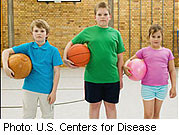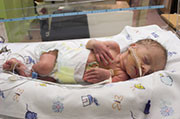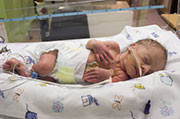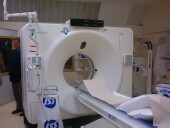CDC: Rates of Childhood Obesity Higher in U.S. Than Canada
Rates differ dramatically for children aged 7 to 12
RSV Detected on Parents’ Clothing in NICU
Although detection rate is low
Low Rates of HIV Testing in Gay and Bisexual Youth
Only one in five gay and bisexual males ages 14 to 18 had ever been tested for HIV
Preterm Birth, Poor Fetal Growth Tied to ADHD Risk
Higher risk of ADHD seen for children among lowest and highest weight percentages
Too Few Blacks, Hispanics Pursuing Careers As Physicians
Shortage of minority physicians may affect U.S. patient care, experts say
Women in Academic Medicine ‘Manage Femininity’ to Succeed
Strategies for this include appearing easy-going or downplaying differences based on gender
Healthier Diet Linked to Reduced Congenital Heart Defects
Tied to reduced risks of tetralogy of Fallot and atrial septal defects
Perfluorinated Alkylate Levels Up in Breastfed Infants
And PFASs appear to lower effectiveness of some childhood vaccinations, researchers add
Pediatric CT Scan Use Has Declined Over Past Decade
More children are undergoing MRI scans and ultrasounds, which don't carry radiation risks
Promacta Approval Expanded for Children With Chronic ITP
Builds on recent approval for ages 6 years and up for chronic immune thrombocytopenic purpura



















